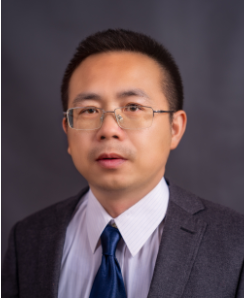| Prof. Xiongfeng PanDalian University of Technology, China Research Areas: Regional innovation system, spatial economics and energy economics Introduction(Click to view more): Prof. Xiongfeng Pan earned his Bachelor's degree in Welding Technology and Equipment from Tianjin University (1998-2002) and his Master's and Doctoral degrees in Management Science and Engineering from Dalian University of Technology (2002-2007). He has been with Dalian University of Technology since October 2007, serving as a lecturer, associate professor, professor, and doctoral supervisor. Notably, he was recognized as a "Technology Cultivation Star" in Dalian in 2015 and as an "Innovative Talent in Higher Education" in Liaoning Province in 2020. In addition to his academic roles, he serves as the associate editor of the International Journal of Climate Change Strategies and Management and is a council member of the Energy Economics and Management Branch of the China Society for Optimization, Overall Planning and Economic Mathematics, as well as a member of the China Technology Economics Forum. |
Prof. Qingyu ZhangShenzhen University, China Introduction:Zhang Qingyu is a distinguished professor at the School of Management, Shenzhen University. Before returning to China, he taught atArkansas State University. He is mainly engaged in the research of supply chain management, sustainable operation management, data mining and intelligent algorithms. He has published more than 100 papers and 5 books in academic journals and conferences, and most of his research results have been published in key academic journals such as JOM, EJOR, IJPR, IJPE, IJOPM, COR, IEEE, etc. He is a Certified Senior Production and Inventory Manager (CFPIM Fellow) by the American Operations Management Institute (APICS). He is also a Microsoft Certified Solution Specialist (MCSD), Systems Engineer (MCSE), and Database Administrator (MCDBA). He has received three outstanding journal paper awards, three outstanding Conference paper awards, and three Arkansas State University College of Business Research Excellence Awards. One of his highly cited hot papers on supply chain cooperation won the Journal ofOperations Management Jack Meredith Best Paper Award (JOM Best Paper Award) in 2016. The journal is one of the 24 internationally recognized top journals in UT/DALLAS Economic Management category). He chaired the National Natural Science Foundation Project and chaired/participated in more than $800,000 of scientific research projects in the United States. He is a member of the editorial board of six journals, including Journal of Operations Management, Transportation Research Part E, Associate editor of the Iranian Journal of Management Studies, Judge of the American Natural Science Foundation, and judge of the Portuguese Science and Technology Foundation. |

